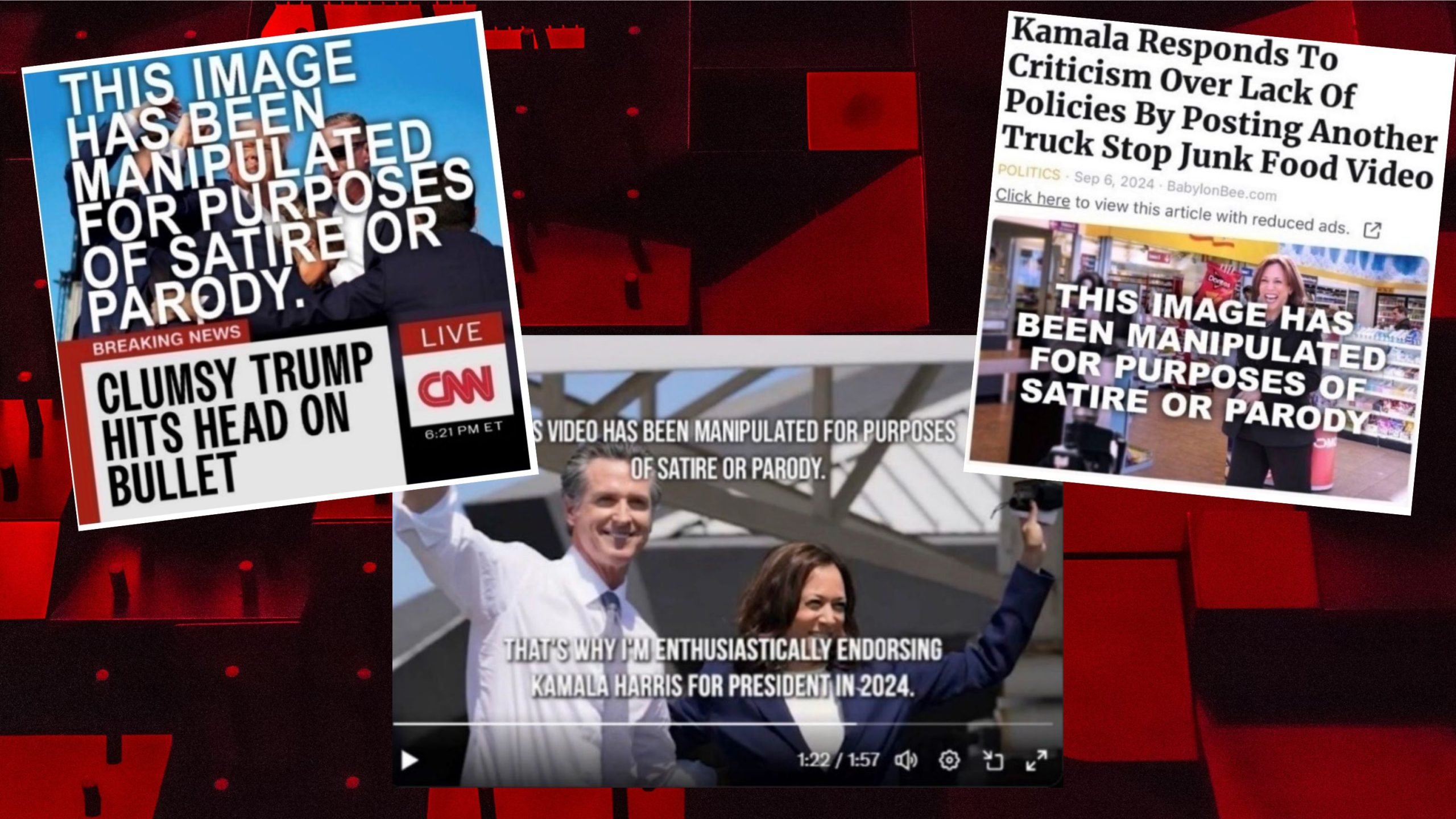The Brookings Institution, seems to believe it has solved the problem faced by those who would like to censor memes. The problem is that memes are a form of satire, and censoring them while claiming to be a democracy is a difficult task.
But now, senior Brookings Institution fellow Nicol Turner Lee and Isabella Panico Hernandez, a project assistant, have revealed their thinking: AI memes should be treated as election disinformation “manifested” through satire.
One could use a similar form of mental gymnastics to say that this kind of argument represents a call for censorship manifested through supposed concern about disinformation.
Related: Court Blocks Newsom’s Unconstitutional Attempt to Muzzle Parody During Election Season
The Brookings, meanwhile, is not just any foot soldier in the “war on memes”: it is a powerful think tank funded by the likes of Amazon, Google, Meta, Microsoft, but also massive financial institutions like JPMorgan Chase (via its philanthropic foundation) and that of Mastercard, Impact Fund.
Brookings speaks about memes, particularly those AI-generated (adding some AI panic into the mix can only help the cause), as an extremely dangerous phenomenon hidden behind humor, and perceived as humor by pretty much everyone.
But the think tank, and others going after memes, present themselves as smarter and able to understand the true nature of this clearly humorous and often satirical imagery, which they say only “seem harmless” and “appear innocuous.”
Instead, the authors of the article say memes can influence how voters perceive candidates and other election-related information, “could potentially lead to violence” – and are “globally perceived” as being capable to “fuel extremist behavior” – which is in contrast to the US, supposedly because of the lack of appropriate regulation.
And so, less than a month before the presidential election, these according to the authors insidious messages use humor merely as a vehicle to spread dangerous influence, but are not properly tackled in the US.
Brookings also doesn’t like the fact memes can spread quickly and presents this as yet another reason they are dangerous. Congress is criticized for not passing legislation to protect the copyright of large language models – the implication being, that AI-generated memes could be suppressed on copyright grounds.
And they don’t like that Congress has left memes, humor, satire, and parody out of the DEEPFAKES Accountability Act because those fall under the freedom of expression category.
But Brookings wants us to think that “the task of deciphering what is parody and what is deceptive can be very challenging.”










